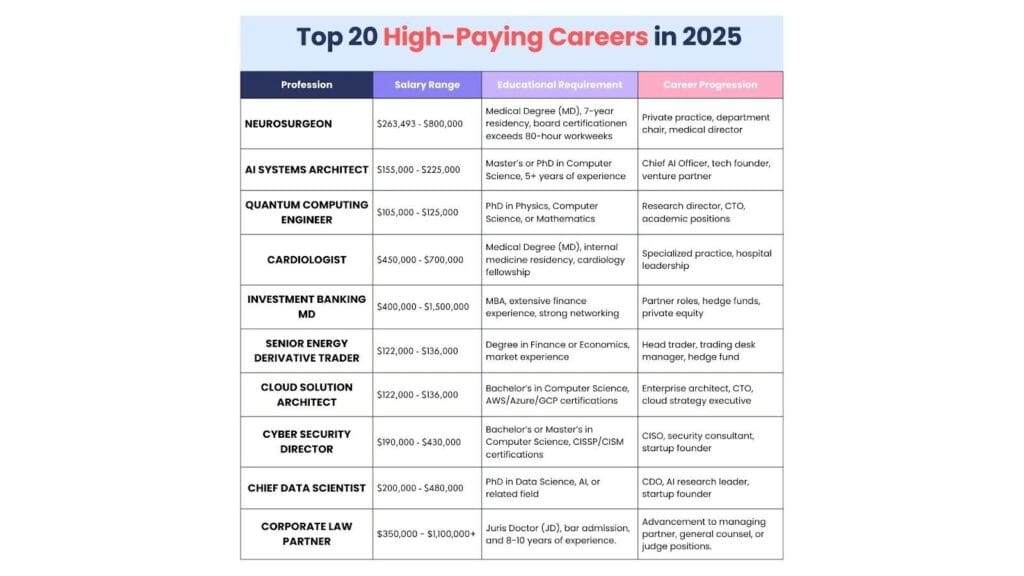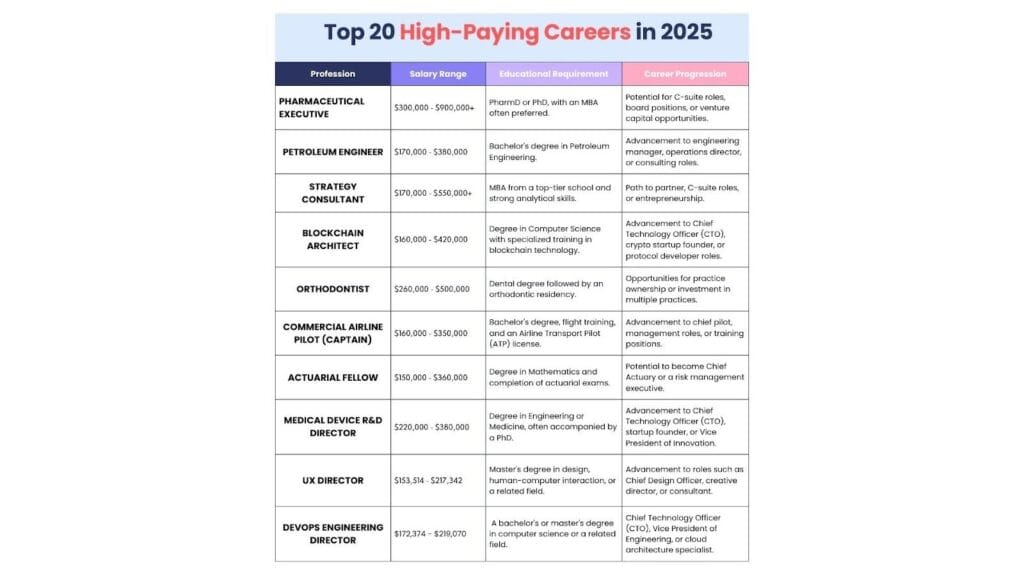Remember how we used to dream about becoming doctors, lawyers or engineers as kids?
Never mind that designing an entire summer was not considered “real job” because… well it doesn’t pay enough, it’s too competitive, or it’s “just a hobby.”
Who planted these ideas in our heads?
It’s rarely a single person, but rather a perfect storm of influence.
Parents who survived economic hardships and wanted security for us.
Teachers who saw potential and pushed us toward practical paths.
Media that glamourize certain careers while quietly dismissing others. Even our friends parroting back the same message they received.
The narrative runs deep. Success means stability. Stability means a reliable paycheck.
And a reliable paycheck comes from an established career path.
We internalize these messages so thoroughly that by high school, many of us have already abandoned our wildest dreams for something more “sensible.”
Is it too late to reconsider? Never! People reinvent themselves at 30, 45, 60.
The paths aren’t always straight, but they are there.
In this blog, we will talk about which jobs pay the most, and which don’t, what affects salaries, how to get the best-paying jobs, and how AI can help.
Let’s go!
Why High-Paying Jobs Matter
Anyone who says “Money doesn’t matter” probably has enough of it.
A high-paying job changes life in ways that are not always obvious until you experience them.
Sure, you might get the luxury cars or fancy vacations – and they bring the joy – but money matters more for basics than for the luxuries.


Never Worry About AI Detecting Your Texts Again. Undetectable AI Can Help You:
- Make your AI assisted writing appear human-like.
- Bypass all major AI detection tools with just one click.
- Use AI safely and confidently in school and work.
It means living in safe neighborhoods. It means going to the doctor when something feels off rather than hoping for it to go away.
It also means to afford a vacation rather than those “staycations” that we pretend to like.
A high-paying job gives you control over your finances, your choices and your life.
It buys you freedom.
And also the extra dollars you earn can grow through investments.
You can build wealth that works for you even when you are sleeping.
Instead of worrying about whether you’ll ever be able to retire, you can plan for it.
While planning your financial future, it’s also worth understanding.
How different types of loans affect credit rating. as it can impact
your ability to access better financial opportunities later.
Flipside, financial stress buys misery.
Ask anyone who has to choose between medicine and food this month.
The Growing Demand for High-Salary Careers
The job market has done a complete 180 since the COVID hit.
Earlier, job security meant sticking with one company for 30 years like our parents and grandparents did.
Now, workers are boldly leaving under-paying positions.
This exotic has forced the companies to rethink salaries and the benefits.
They’re suddenly scrambling, hosting “culture committees” and offering remote work options they swore were impossible before 2020.
As a result, we are seeing the demand for specialized talent in lucrative sectors like technology, healthcare and financial services.
77% of employees report difficulties in finding appropriately skilled workers, while the tech industry alone faces a projected 1.2 million worker deficit by 2026.
This is the exact reason why these fields command impressive salaries.
According to the Bureau of Labor Statistics projections through 2030:
- Healthcare will explode with 16% growth (generating 3.3 million new positions)
- Technology: 14.7% growth (1.5 million new jobs)
- Finance: 4.8% growth (462,100 new jobs)
These are among the growing industries.
But location still matters, though. The same job title can automatically have different salaries depending on the location.
If you are making $175,000 in San Francisco, the same roll might pay $25,000-$40,000 in a developing country.
But this creates unique opportunities.
Companies in high-cost areas increasingly hire talent from lower-cost regions, offering salaries that split the difference – less than they’d pay locally, but far more than candidates would earn in their home markets.
Key Factors That Influence Salary Levels
You might have seen people who earn twice, or even thrice your salary despite working way less than you do.
It is because of the market dynamics.
Let’s discuss the top five factors that influence the salary levels.
- Market Demand vs. Available Talent
Simple economics. When companies desperately need workers, they pay more.
When too many people can do the same job, wages stagnate.
For instance,
When cyber threats were rising after 2022, there wasn’t enough talent to mitigate this, so people who learned the skill earned six-figure salaries.
On the other hand, some industries are over-saturated like journalism.
Because of this, the pay often lags. If you want to maximize your earnings go where the demand is higher than the supply.
- Industry Profitability & Growth Trajectory
Some industries just have more money to throw around.
For example,
Tech companies rake in billions, healthcare is life-saving, finance is all about making money—that’s the reason why software engineers, AI specialists, doctors, investment bankers and hedge fund managers get huge bonuses.
But industries like retail or education? Their profit margins are smaller, so even leadership roles may not offer sky-high salaries.
- The Specialized Skills Premium
The more replaceable you are, the less you earn.
Specialized skills—whether technical, analytical, or leadership-based—can turn an average job into a high-paying one.
- Technical Skills → AI, software development, data science = 💰💰💰
- Analytical Skills → Risk analysis, financial modeling = 💰💰
- Leadership Skills → Executive roles, strategic decision-making = 💰💰💰
Even within industries, specialists make way more than generalists.
A general accountant? Decent pay.
A forensic accountant who investigates fraud? Easily double the salary.
- Geographic Considerations & Cost-of-Living Adjustments
A six-figure salary sounds great—until you realize it barely covers rent in San Francisco.
Geography has its role in deciding the salaries.
Companies offer the package based on local cost. Jobs in New York, San Francisco, and London tend to have higher salaries.
But if you land a remote job at an SF-based company while living in a comparatively cheaper city?
That’s when you win the salary game.
- Company Size & Funding Status
This has its own placement in the factor list.
- Big Corporations → Stability, higher salaries, structured promotion (Google, Apple, JPMorgan).
- Startups → Lower base salaries but stock options could make you rich—if the company succeeds.
- Government & Nonprofits→More job security, lower salaries than private companies.
How Education & Experience Impact Earnings
College isn’t cheap—but is it worth it? This boils down to the career choice.
Some degrees deliver a staggering ROI as compared to others.
For example,
Petroleum engineering gives a 25-year ROI of $2.1 million.
Art, or history degree gives $378,000 over the same period.
This means not all degrees are equal.
Then comes the experience factors.
There are careers where hands-on skills matter more than a degree.
For example,
If you can prove your ability in tech, marketing, or digital fields, companies care less about where (or if) you went to high school.
That’s why education alone isn’t the key.
0-2 years → Entry-level (low pay, lost of learning)
3-5 years → Mid-career (specialized skills, salary bumps)
6-10 years → Senior roles (higher pay, leadership opportunities)
10+ years → Executive level (biggest salaries, strategic influence)
There’s no one-size-fits-all answer, but the smartest approach is to align education with high-demand skills.
- If you’re going to college, pick a degree with strong earning potential.
- If you want to break into high-paying fields fast, consider bootcamps or certifications.
- If you’re mid-career, continuing education can give you a salary boost.
No matter the path, the more valuable your skills, the more you can earn.
What Jobs Make the Most Money? Top 20 Highest-Paying Careers
Let’s cut through the noise and look at where the real money is in 2025.


What Industries Pay the Most?
Wouldn’t it be nice if your bank account had a little something extra for that vacation you’ve been dreaming about?
Best-Paying Industries in 2025
Well, here’s the list of industries that pay the most.
Then there’s a private-sector job with higher earning potential or a public-sector job with more stability. Let’s see the comparison.
Private Sector (Higher Pay, Less Stability)
- Higher starting salaries & bonuses
- Faster career growth
- More layoffs in downturns
Public Sector (Lower Pay, More Stability)
- Government pensions & benefits
- Recession-proof jobs
- Slower salary growth
💡 For maximum earnings, many professionals start in the private sector, build wealth, and later transition into stable public-sector roles.
How to Qualify for the Best-Paying Jobs
To get paid the big bucks, you don’t always need fancy degrees, but you DO need some tricks up your sleeve. Let’s dive in.
1. Learn The Money-Making Skills
What skills are making banks in 2025?
- AI & Machine Learning
- Cloud Architecture
- Data Analytics
- Cybersecurity
- Remote Team Leadership
Here’s how you can find a perfect high-paying skill..
- Search job boards for positions paying 30% above your target salary.
- Identify the 3-5 technical skills mentioned most frequently across these listings.
- Cross-reference these with your existing strengths and interests.
2. Skip the Job Boards—Leverage Networking
Think about it – wouldn’t you rather hire someone your friend vouches for? For example,
- Tech → GitHub, hackathons
- Finance → Alumni events, industry conferences
- Healthcare → Professional associations
- Consulting → Case competitions, panels
Best networking question to ask: “What would you recommend someone in my position focus on next?” (People love to give advice!)
3. Show, Don’t Tell
Yeah, you’ve heard this before, and there’s a fair chance that you’re rolling your eyes right now. But stick with me.
We all say this stuff on our resumes…
“Team Player” (Aren’t we all?)
“Detail Oriented” (Who admits they’re not?)
“Improved Efficiency” (Doing… what exactly?)
The money move is to get super specific:
For example,
Bad: Improved efficiency
Better: Cut processing time by 35%, saving $420K annually
4. Negotiate Like a Pro
- Never reveal your previous salary. Instead say: “What range has been budgeted for this role?”
- Beside asking about the salary – ask for the perks that company offers like company shares, extra vacations, and remote flexibility.
- If you’ve got other job offers, wave them around (politely). Nothing raises an offer like knowing you might pick someone else.
Fat paychecks aren’t about working until your brain melts – they’re about being clever about where and how you work.
How AI Can Help You Land a High-Paying Job
As mentioned earlier, landing a job requires strategy and AI helps you in that. Here’s how:
For Writing ATS Friendly Resume
Before a human eye sees your resume, it likely has to pass through an Applicant Tracking System (ATS). An AI Resume Builder gives you advantage by:
- Automatically identifying industry keywords so you don’t have to spend hours.
- Optimizing your format to be ATS-friendly so your resume doesn’t get rejected before a HR sees it.
- Tailoring experience description to highlight achievements that matter most for each role.
Why would you spend hours on things that’ve been done efficiently by an AI. Use this time to upskill yourself.
For Automatically Applying For Job
Those who don’t know about the AI advancements, they’re the only ones not using it for the auto-job applications. With our Smart Applier, you can:
- Apply to 50+ relevant positions daily instead of just 5-7.
- Automatically adjust the cover letters and application material for each position.
- Monitor application status, follow-up timelines, and response rates.
- Identify which type of applications get the most responses.
Sign up to the AI Resume Builder & AI Job Application Bot Tool and start saving your time… and your sanity.
While you’re at it, explore our AI Detector and Humanizer in the widget below!
FAQs About the Highest-Paying Jobs
What Jobs Make the Most Money Without a Degree?
In 2025, some of the highest-paying jobs that don’t require a degree include software developers, real estate agents, commercial pilots, sales managers, and digital marketers.
But just because these jobs pay well now doesn’t mean they’re the right fit for you.
Your skills, interests, and natural talent matter too. It’s always best to consult a career advisor – or AI Chatbot – to explore career paths that match your strengths and long-term goals.
What Careers Will Pay the Most in the Future?
The job market is rapidly changing, so there’s no concrete answer to this. However, some careers are expected to offer high salaries even after 2025.
This includes careers like artificial intelligence, cybersecurity, healthcare technology, renewable energy, and financial analysis, which are among the most lucrative.
Do High-Paying Jobs Require Long Working Hours?
Not always. Unlike doctors and lawyers, some high-paying jobs have flexible hours, like software engineers and digital entrepreneurs.
If you have a valuable skill, you can negotiate better pay.
How Can I Increase My Salary in My Current Job?
By making yourself more valuable. Work on learning new skills, taking on bigger responsibilities, and showing your boss how much you mean to him/her.
Also, networking, asking for a raise, and switching to a better company can bring you more money. Think about getting a job that has a higher earning ceiling if your current job has a low one.
Conclusion
Let’s face it. We all want a paycheck that makes our parents proud and fulfills our wishes.
But you shouldn’t chase a career solely for the money without passion for it.
It’ll be like eating a pizza without cheese – tasty at first bite, but something very important is missing.
The way to success is finding a sweet spot where your talents meet what the market craves.
Maybe you will excel in AI engineering, or healthcare is your jam, who knows?
Sure, some days you will wonder if that art degree was a mistake (it wasn’t).
We are all figuring it out together.
So, grab those in-demand skills, network like your social life depends on it (because your financial one might!).
And remember, the best career is not the one that pays the most, it’s the one that makes Monday morning a little bit less unbearable.
